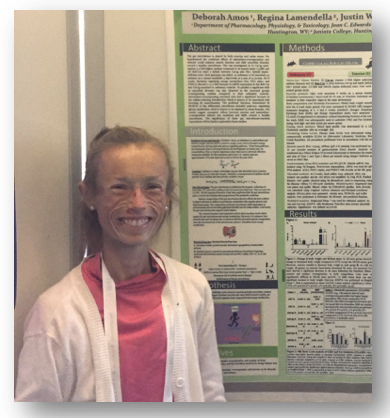Concluding remarks of 6th World Congress on Targeting Microbiota
Our meeting gathered more than 250 participants from all over the world.
This year we put our focus on 4 thematic blocks:
- Recent advances and challenges in the microbiota research.
- Strategies to manipulate microbiota & medicine of tomorrow.
- Microbiota sequencing, big data interpretation, and artificial intelligence: myth or reality? and
- The strategic role of metabolites and mediators on the microbiota-host cross-talk.
In the first presentation, Markus Egert from Germany, presented a complex interaction between built environment (BE) and the human microbiome. He showed also a multiple strategies to manipulate BE for health (for example microbially coated building materials). A depletion of microbial diversity in the BE in industriallized countries is supposed to be partly responsible for an increasing prevalence of allergy and asthma.
In the next presentation Maria Vehreschild from Germany demonstrated the extensive collateral damage induced by use of antibiotics. The detrimental side effects of antimicrobials are constatly growing and include loss of microbiota diversity on the population level, emergence of multidrug resistance bacteria, and increased incidence of civilisation diseases that are linked to dysbiosis such as autoimmune disorders, allergies, metabolic syndrome and psychiatric diseases (depression, anxiety disorders).
David Durgan from USA showed a very important link between gut dysbiosis, local gut inflammation, bacterial translocation and obstructive sleep apnea (OSA)-induced hypertension.
In the next lecture, Nicolas Cenac from France talked about an important link between production of bioactive lipids by microbiota and visceral pain.
Francesca Guida’s lecture was focused on alteration of gut microbiota induced by vitamin D deficiency. It is an important observation, since vitamin D deficiency is a very common disorder.
Gut microbiota dysbiosis plays a central role in the pathogenesis of graft vs host disease (GvHD) and is a major cause of mortality in patients after allogenic stem cell transplantation. Gerd Holler from Germany presented in his lecture the importance of gut microbiota and microbial metabolites in the pathogenesis of GvHD. Based on numerous studies, including his own, he postulated that the microbiota-based modulation of intestinal inflammation and GvHD is likely to improve clinical outcomes in the future, however, more clinical studies are needed.
As a continuation of this topic, Nicasio Mancini from Italy, demonstrated microbiome markers that can be useful in the identification of patients at risk of major transplant-related complications after allogenic stem cell transplantation.
Finally, Lakshmi Rani from India, presented new studies on gut microbial diversity in patients with Entamoeba histolytica.
The next block of the conference was devoted to different strategies to manipulate microbiota. Fecal microbiota transplantation(FMT) is an important option to treat recurrent C.difficile infection (rCDI) (-> Peter Konturek, Germany). This method leads to succesful treatment (cure > 90%) of rCDI through different mechanisms including increase in gut microbiota diversity, modification of bile acids composition and alleviation of gut barrier injury. Recent studies indicate that autologous FMT restores gut microbiota of antibiotic treated patients. FMT is effective in eradication of antibiotic resistant bacteria colonisation in the gut. A new freeze-dried formulation to conserve stools over 12 months for FMT (à Julie Reygner, France) represents an important step to simplify patient access to this treatment
Phage therapy represents a new promising method to modulatd gut microbiota. The development of new strategies to modulate gut microbiota is very important, since clasical probiotic exposure during infancy has limited effects on gut microbial composition as showed by Candice Quin from Canada.
The modulation of gut microbiota plays a central role in the treatment of patients with irritable bowel syndrome (IBS). Elisabeth Norin (Sweden) demonstrated an ACHIM (anaerobic cultivated human intestinal microbiota) as a novel method to restore intestinal microbioat in IBS patients.
Marivn Edeas (France) presented important data on cross-talk between gut microbiota and mitochondria. Mitochondria are organelles within each cell that are crucial for ATP production and are major producers of reactive oxygen species (ROS). There is an accumulating evidence for bidirectional interaction between mitochondria and microbiota.
One of the most important challenges for the future is better understanding of the communication between microbiota and host. The exploration of this communication is of great importance for the better understanding of the pathogenesis of dysbiosis-related diseases. Julien Diana (France) described a new crosstalk between gut microbiota, innate immune cells and pancreatic endocrine cells that is important for the protection against autoimmune form of diabetets mellitus type 1. Crucial role in this protection play short chain fatty acids that induce the production of IL-22 by pancreatic innate lyphoid cells (ILCs) that in turn stimulate the production of defensins by endocrine cells. This study shows an important role of microbial metabolites in the modulation of immune response. This opens a completely new approach to prevent some autoimmune diseases via targeting of gut microbiota.
New data on the role of TMAO as a risk factor for cardiovascular diseases was presented by Marcin Uffnal from Poland. Experimental data indicates that in some settings TMAO is protective but not harmful as described before. Blood TMAO level depends on numerous factors including diet, composition of gut microbiota, permeability of gut barrier and rate of methylamine excretion. The usefulness of TMAO as a risk marker for cardiovascular diseases seems to be questionable.
Jan Mazela (Poland) presented new data on the importance of the vaginal delivery for the colonization and development of gut microbiota in neonates. The preterm infants should receive probiotic supplemantation to reduce the risk of necrotizing colitis (NEC) characterized by high mortality.
Microbe-brain relationship are receiving more and more attention in neuroscience. An increasing number of studies indicate the microbial associations with emotion, cognition and social behaviour. Paul Forsythe from Canada showed a lot of new data on the interaction between gut microbiota and the brain. Certain bacteria are psychoactive and there is a strong association between gut microbes, brain and immune system. Some proinflammatory responses induced by microbes are associated with anxiety or depression. Further studies are needed to explore the effects of psychobiotics on emotions and neuropsychiatric conditions.
Another approach to microbiota-brain gut axis was demonstrated by Maria Cecillia Giron from Italy that talked on recent advances on the relation between the gut microbiota and the neurodegenerative diseases (Parkinson’s disease, multipl sclerosis). A better understanding of the dialogue between gut microbes and brain should bring new important insights in the pathophysiology of these neurodegenerative diseases. Future studies must show if the modulation of gut microbiota by diet, probiotics or FMT may influence the neurodegenerative cascade.
From the physiological point of view, one of the most important links between gut microbiota and extra-intestinal organs is the gut–liver axis. It represents a close functional and bidirectional communication between the intestine and the liver. Philippe Gerard from France presented new data on the role of gut microbiota in the development of steatohepatitis. Different susceptibilities to fatty liver disease are transmissible by gut microbiota transplants. This indicates that fecal microbiota transplantation could be an important therapeutic option in patients with nonalcoholic and alcoholic steatohepatitis (NASH/ASH).
The new data on the role of gut microbiota in alcoholic liver disease (ALD) was presented by A Riva from UK. Interestingly, in the ALD, the antibacterial potency of mucosa-associated invariant T cells (MAIT) is compromised as a consequence of contact with microbial products and microbiota. The leaky gut observed in ALD patients drives MAIT dysfunction and susceptibility to infection in these patients.
In conclusion, intestinal dysbiosis is observed in many chronic liver diseases (e.g., NAFLD, ALD, immune-mediated liver diseases, liver cirrhosis and hepatic carcinogenesis). There is increasing evidence for an adverse role of intestinal dysbiosis in the pathogenesis and progression of these diseases. Amelioration of the dysbiosis through the use of prebiotics, probiotics, and fecal microbiota transplantation improves the gut-barrier function and appears to be a promising new approach to managing chronic liver diseases.
Finally, a number of important short presentations on different aspects of targeting of gut microbiota were presented during our meeting. These short presentation as well as numerous poster presentations were an important scientific enrichment of our meeting.
Our conference showed a tremendous progress in the understanding of human microbiota. There are multiple associations between intestinal dysbiosis and numerous diseases inside and outside the gut. However, simple associations may lead to misinterpretation of results. We need more studies showing causality as a proof of concept. We need to better explore different microbial metabolites that play an important protective or harmful role (TMAO, H2S, SCFA etc). Finally we should obtain more data on the role of viruses and funghi in the gut. The future will show, if data obtained in animal models can be translated into the clinic. I think that all participants realize the importance of such meeting like that in Porto. We need more interactions!
At the end of the conference, The Scientific Committee awarded Four scientists for their strategic research:
 |
Scientific and Medical Contribution Award"Targeted gut microbiota and short chain fatty acid profile amoung term and preterm infants"
Prof. Jan Mazela, Poznan University of Medical Sciences, Poland. Read more... |
 |
Short Oral Presentation Award"A new freeze-dried formulation to conserve stools over 12 months for fecal transplantation"
Dr. Julie Reygner, Université Paris Descartes - Faculté de Pharmacie, France Read more... |
 |
Poster Presentation Award"The potential role of Clotridium ramosum in the development of obesity"
Tina Jaenicke, German Institute of Human Nutrition, Germany Read more... |
 |
Special Poster Presentation Award"Synergistic effects of sports, antioxidant and microbiota"
Deborah Lynn Amos, Marshall University, USA Read more... |
I am very pleased to announce the next 7th World Congress on Targeting Microbiota in Krakow (Poland). It is a beautiful city and a place where Polish culture and science meet, a city reach in history and with exceptional atmosphere. It is a perfect place to present latest basic and clinical research on human microbiota.
I look forward to welcoming you to Krakow!!!
Peter Konturek
President of ISM
www.microbiota-site.com
























































